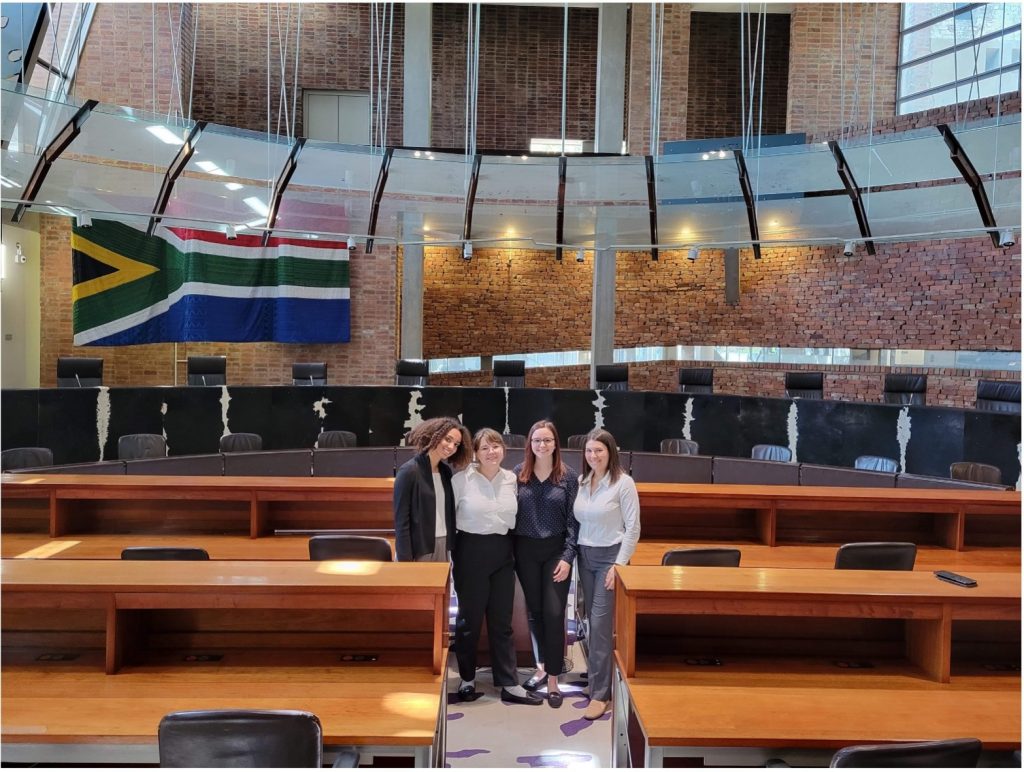New perspectives on labour law

Last summer, we participated in the fourth iteration of the South African Society for Labour Law (SASLAW) Pro Bono Canadian fellowship program. SASLAW’s Pro Bono project is administered in South Africa’s four labour courts and aims to assist unrepresented, indigent litigants who would otherwise not have access to justice. SASLAW’s volunteer attorneys service free legal advice clinics on a rotational basis.
We spent two days each week at the embedded Pro Bono office in Johannesburg’s student district. Our tasks included administrative work, helping bring in clients, and updating the internal client tracking system. The rest of the week was spent visiting law firms and organizations throughout the country.
South Africa’s unemployment rate is approximately 35 percent (55 percent, including informal workers). For comparison, Canada’s current unemployment rate is around 5 percent. A myriad of factors contribute to the country’s high unemployment rate, one of which is the legacy of apartheid. Apartheid translates to “apartness” in Afrikaans and refers to the system of institutionalized racial segregation that governed South Africa from 1948 to 1994. The system was premised on social stratification by race, which ensured that South Africa was dominated politically, socially, and economically by the minority white population. The effects of apartheid cut across all aspects of life, from the segregation of public facilities and social events to housing, education, and employment opportunities.
Yet, the social and economic effects of apartheid continue, particularly in the labour sphere. We witnessed the racial divide while working at the Pro Bono office at the Labour Court where almost every client was Black, and the vast majority of judges and lawyers were white. Even at the Pro Bono office, there seemed to be barriers to accessing justice at every turn. The travel necessary to access legal assistance was most striking to us. When collecting the sign-in sheet for the day’s appointments, clients arrived as early as 4am, with many having slept outside the court to get an appointment. We met with individual clients and heard their concerns, translating these into demand letters for payment of owed wages. Often, we got to see how these letters, especially when printed on formal firm letterhead, would enable clients to resolve matters with employers without going through the incredibly lengthy court process.
We believe the program aimed to provide an in-depth understanding of the field of South African labour law from multiple perspectives. We met judges and visited historic legal landmarks, 14 law firms, five different Pro Bono offices, as well as union offices, factories, women’s shelters, and children’s homes across South Africa. We had the opportunity to engage with internal employer processes, such as disciplinary hearings, including those that involved government workers. We drafted formal lines of questions to support these hearings and arguments for court cases, consulting with practising attorneys and litigators. We also reviewed internal and external policies responsive to South Africa’s new initiatives to end gender-based violence and discrimination. Each day brought new opportunities to build our skills and our understanding of labour law.
Our learning took place both inside and outside of the workplace. We were often confronted with uncomfortable truths about the law’s potential for abuse and its undeniable role in the history of systematic oppression with which South Africa continues to grapple. At the same time, we saw how powerful the law can be in championing the principles that underpin the Constitution of South Africa, now considered one of the most progressive in the world.





